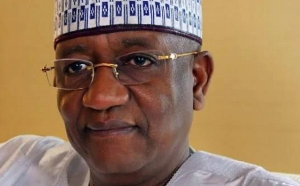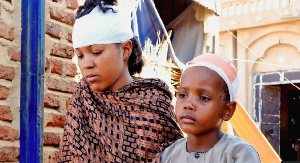Energy think tank Africa Centre for Energy Policy (ACEP) has said it supports the emerging national consensus to deal with illegal small-scale mining (galamsey) in Ghana.
A statement issued and signed by Benjamin Boakye, Deputy Executive Director of ACEP on Monday 10th April noted that the uncontrolled destruction of the environment for precious minerals, particularly gold, highlights a collective irresponsibility of small-scale miners, chiefs, politicians, land sector agencies, the Environmental Protection Agency (EPA), security agencies, and other relevant regulators of the sector who look on while lives, lands, water bodies, and cash crops are destroyed to the detriment of both current and unborn generations.
The statement said: “There are ongoing efforts to respond to the President's declaration to address the challenges posed by galamsey. The Minister of Lands and Natural Resources recently issued a moratorium on licensing to small-scale operators and a freeze on all small-scale mining activities. While these efforts are in the right direction, it must be noted that similar efforts by past governments were not successful due to the complexity of the problem at hand. One major impediment to the success of these efforts has been the invisible powers behind illegal mining activities. Some of the faces that show up in the day against galamsey are also the same ones that are, at night, behind the dredging of river bodies, the destruction of cocoa farms and the abandoned pits that serve as death traps in many mining communities.
“If current efforts will be successful, responsibility must be placed right where it belongs. We cannot win the battle against galamsey if those held accountable live in Accra and are out of touch with suffering communities. The central government must decentralise accountability to chiefs, district chief executives, local-level leadership of the EPA, district commanders of the state's security agencies as well as other duty bearers in the sector. These must have primary responsibility for the sustenance of the environment and be required to give account of their stewardship to local communities and the central government. Central government must, however, be on the beat to support local authorities with security reinforcement and logistics when needed. Civil society groups and the general public must also provide the needed oversight to keep all duty bearers in check.
“ACEP has already taken steps to ensuring that Ghana's mineral resources have transformative effects on local communities. Over the past two years, ACEP has piloted a mining portal that provides real time, GPS-verifiable information on mining activities. The platform, www.ourmineralresource.org, has so far been used to gather real time data on mining impacts in the Fanteakwa and Asutifi districts through community volunteers using smart devices.”
General News of Monday, 10 April 2017
Source: classfmonline.com













